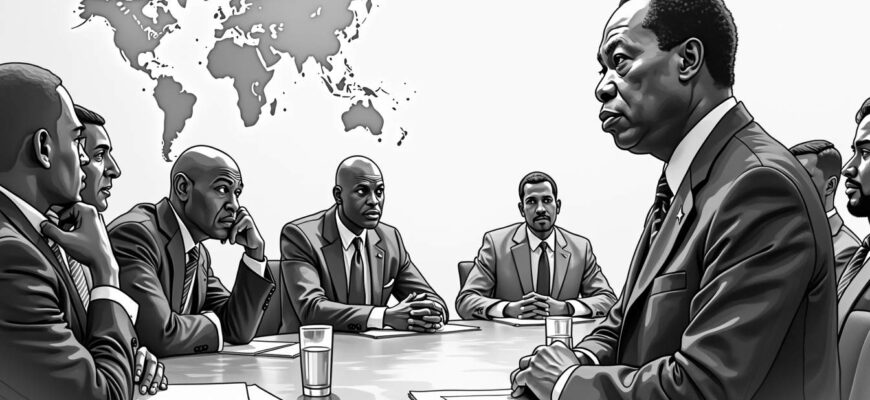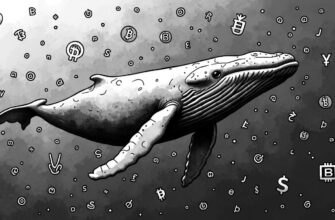The legacy of Andrew Young, a civil rights titan and diplomat, is rich with lessons that resonate in today’s world of blockchain technology. His journey as the U.S. Ambassador to the UN during the Carter era was a quest to fuse Martin Luther King Jr.’s vision of justice into global policies. In this post, I’ll unpack how Young’s strategies can serve as a compass for modern blockchain diplomacy, offering guidance in resilience, negotiation, and ethical leadership.
- The Making of a Diplomat
- Lessons for Blockchain Diplomats
- Building From the Ground Up
- Negotiation and Collaboration
- Ethical Leadership
- Engaging Diverse Interests
- Adapting and Staying Flexible
- Resilience in Adversity
- The Challenge of Innovation
- Regulatory Hurdles
- Stakeholder Dynamics
- Principles Versus Practicality
- Summary: Activism Meets Blockchain
The Making of a Diplomat
Young wasn’t just a diplomat; he was a force in the Civil Rights Movement, serving as MLK’s right-hand man and leading the Southern Christian Leadership Conference (SCLC). His fingerprints were on pivotal protests and marches, like those in Birmingham and Selma, and he was deeply involved in the anti-Vietnam War protests. His civil rights roots provided a unique lens when he became the first African American U.S. Ambassador to the United Nations in 1977.
His appointment was a symbol of the Carter Administration’s internal struggle between a human rights faction and a Cold War faction. Young aimed to carry King’s vision into the UN, trying to transform the establishment from within while grappling with its own contradictions.
Lessons for Blockchain Diplomats
Building From the Ground Up
Young’s career teaches us that grassroots support matters. He organized “citizenship schools” and voter registration drives, empowering communities. Blockchain entrepreneurs can mirror this by engaging with their communities, educating them, and building a loyal user base. A strong community can become an advocate for blockchain projects.
Negotiation and Collaboration
Young’s knack for mediating between civil rights leaders and local governments underscores the power of negotiation and collaboration. Blockchain entrepreneurs can draw from this by initiating constructive dialogues with regulators and industry players. Building alliances can ease the way for blockchain innovations to flourish.
Ethical Leadership
Young’s unwavering commitment to morality, even amid adversity, is a reminder for blockchain entrepreneurs. Upholding strong ethical standards fosters trust and credibility. In an industry often scrutinized, ethical leadership is non-negotiable.
Engaging Diverse Interests
Young’s willingness to engage with diverse interests, even those opposed to him, shows the need to build bridges. Blockchain entrepreneurs can benefit from this strategy by involving regulators and stakeholders who may initially resist their innovations. Finding common ground can help to soothe tensions.
Adapting and Staying Flexible
Young’s chameleonic career—from pastor to civil rights leader, politician, and diplomat—teaches the value of adaptability. In the fast-evolving blockchain landscape, flexibility is key to staying relevant and innovative.
Resilience in Adversity
Young’s story is one of resilience. Facing imprisonment and criticism, he persevered. Blockchain entrepreneurs can learn that setbacks are part of the journey toward transformative success. Resilience is vital in an industry fraught with challenges.
The Challenge of Innovation
Regulatory Hurdles
Blockchain innovators often bang their heads against established institutions and regulatory bodies. Young’s experience advocating for civil and human rights offers a model for navigating this landscape, building coalitions, and engaging in diplomatic efforts.
Stakeholder Dynamics
Conflicts between stakeholders—developers, investors, and regulators—are common in the blockchain space. Young’s diplomatic skills in resolving international conflicts offer insights into managing these dynamics.
Principles Versus Practicality
Blockchain innovators regularly confront the tension between decentralized principles and regulatory compliance. Young’s career exemplifies the struggle of maintaining ethical stances while navigating complex realities.
Summary: Activism Meets Blockchain
The legacy of Andrew Young offers a rich tapestry of lessons for blockchain diplomacy. His insights into grassroots support, strategic negotiation, ethical leadership, adaptability, and resilience can guide modern blockchain entrepreneurs through the intricate regulatory landscape and toward transformative change.








